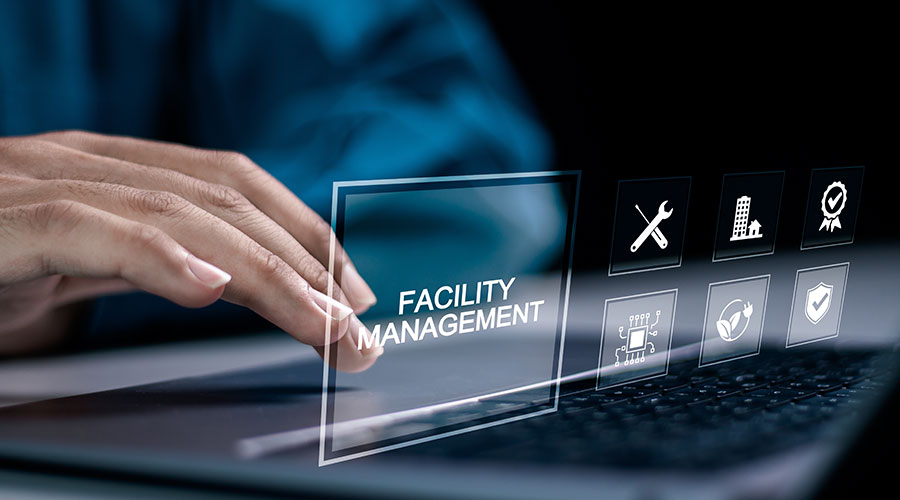Communication, Management Skills Are Invaluable for FMs
Knowing your organization's objectives will lead to understanding how to advance problems through the management ranks.
Along with understanding financial concepts, facility managers need to know how to communicate financial information in a way that’s accurate and compelling, and that captures executives’ attention. This increases the likelihood that they understand why an investment in, for instance, a new building system, is warranted. “Key to this is clarity and brevity,” says Stormy Friday, another member of the ProFMI Commission and president of The Friday Group. Most organizational leaders have limited time. They’re looking for a summary showing how a specific course of action, or lack of action, will affect the organization’s bottom line or mission. “Have your elevator speech at the ready,” she says.
Of course, this means facility managers also need to know what the organization’s objectives are. Often, that requires spending time talking with senior managers about what they view as important. “In some cases, it’s to keep costs low. Other times, it’s high system uptime,” Bick says. For other facilities, a commitment to sustainability is a top priority. Different objectives will lead to different decisions on both capital investments and ongoing expenses.
Another communication skill is knowing when to advance problems through the management ranks, and when to address them yourself. Again, a conversation with leadership can provide guidance. “Discuss with your boss his or her expectations about being kept informed,” Bick says. Typically, most will want to know about situations that expose the facility to a potential code violation or safety or other risk.
In other cases, common sense often can be your guide, Bick says. If a problem appears to be ongoing or even escalating, it probably makes sense to bring it up. “It’s better to have a supervisor say, ‘I no longer need to hear about this,’ versus ask, ‘How come I’m not hearing about this?’” he adds.
Successful facility managers also communicate their value to their superiors and the building owner, helping them understand the job that facility staff is doing, Mayfield says. This helps both the facility manager and his or her staff. By providing a clear picture of the work that all facilities employees do, facility managers help ensure that work is valued, that facility employees are provided with appropriate resources, and that problems are dealt with in a professional manner.
Communication with other departments, such as finance, IT, and human resources, also is increasing in importance. “You need to know how to play nice in the sandbox,” Friday says.
To be sure, some colleagues will be collaborators and some won’t. In either case, “know their agenda,” she says. Because facility employees usually work across organizations, facility managers usually can figure out what other department leaders want and identify ways to help them achieve it. By doing this, facility managers increase the likelihood that these departments will reciprocate.
A lack of communication and management skills can lead to money wasted on initiatives that don’t achieve their objectives, says Bick. For instance, a facility manager who brings in new janitorial contractors without adequately preparing them may find that tasks are done incorrectly, leading to subpar work and complaints. Moreover, a lack of management skills can lead to life-safety risks. Say an employee or contractor isn’t trained in proper methods for cleaning the floors. That can boost the risk of slips and falls.
In the long run, poor management may mean building systems don’t receive the maintenance they require. That can boost operating costs and shorten equipment life.
‘The room where it happens’
At times, effective communication and networking requires taking some risks. Friday points to a song, “The Room Where It Happens,” from the play “Hamilton.” As she says, it’s the room “where the deals are done and the sausage made.” Facility managers need to be in senior level meetings, making their business case and explaining the resources they need to appropriately manage their buildings. “If they’re not there, the decisions still get made, but without facilities’ input,” she says.
To be sure, not every request a facilities team makes will be granted. But facility managers still need to be present and make their case, Friday says. “You don’t want someone else to be in a position to make decisions regarding your organization and resources.”
To gain an invitation to these meetings, “sometimes you have to be bold and a bit pushy,” Friday says. That often means connecting with others outside the facility department. For instance, make an appointment with the chief financial officer; if needed, first get to know his or her administrative assistant. Any competent financial executive is going to be concerned with protecting the organization’s real estate and facilities assets, and facility managers can provide information that will help them do this.
One reason often given to justify not networking is a lack of time; many facility managers’ days are taken up fighting the fires that inevitably arise. However, it’s necessary to carve out time to handle the strategic responsibilities inherent in a facilities manager’s position, Friday notes. That may mean limiting an open-door policy to certain times or delegating some tasks.
Related Topics:















